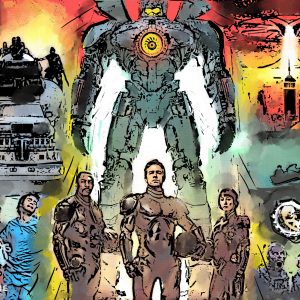Covid-19 leaves creative industry vulnerable
As the coronavirus pandemic shuts down all but essential services around the globe, live entertainers are scrambling to find ways to earn an income from home.
Author:
25 March 2020

The economic effects of the coronavirus are expected to bite down long and hard, and creative workers – one of the more vulnerable sectors of the workforce – are already seeing the devastating impact on their future income.
In the past week, many entertainers claim to have lost six months’ income in one fell swoop and are attempting to deal with immediate concerns, such as paying their rent or bond and car repayments and feeding their families. Some are already looking ahead to the long-term damage the Covid-19 outbreak could do to their careers and future earning potential.
The 77 responses to Akum Agency’s online survey by Tuesday 24 March show that 1 268 live music events had already fallen through in South Africa, affecting 2 334 artists at a cost of R82.8 million. The artist management and booking agency hopes that collating data on losses in the music industry at large will push the minister of sports, arts and culture to create a stimulus package to support musicians.
Related article:
Dancers, musicians and theatre practitioners have already raised concerns about the annual National Arts Festival in Makhanda going digital. The festival is a key institution that supports creative workers in South Africa. Changing its form will affect artists across the nation.
Globally, governments are being petitioned to support the struggling events sector. The Australian live music industry lost AUD$100 million (about R1.05 billion) in income in just four days, rising to AUD$300 million by 21 March, according to website Ilostmygig.net.au. It is collating this data in an attempt to quantify the impact of Covid-19 on the Australian music sector.
In response, digital retailer Bandcamp held a “fee free Friday” on 20 March, during which it did not take a cut of sales. All the money went directly to the musicians.
No laughs, no income
At the top of 7th Street in the Johannesburg suburb of Melville, The Melville Comedy Club’s doors remain shut. Goliath and Goliath, the company that runs the club, made the decision to shut before President Cyril Ramaphosa announced a ban on Sunday 15 March on gatherings of more than 100 people. Managing director Kate Goliath said the club’s closure was a “reality check”.
“Ultimately it closes off a part of our business that served not only the public community but the comedy community as well. So many people are left without laughs or money,” she says. “Many comics only have money from stage performances and so this will cause many to go and find permanent work or create new ways of monetising their skill.”
Related article:
Goliath says the closure of the comedy club is just part of the story. “The club is not our main point of income as we work hard at booking our talent for corporate work,” she says. But all corporate work has been postponed or cancelled. This is where Goliath and Goliath are really feeling the economic pinch. She worries that the live creative industry is the first to go in a crisis and will be the last to be brought back.
“We are not an essential service,” says Goliath. “So when things do hopefully get back to normal, we will be the last to be called because we are seen as an added extra in life, a nice-to-have.”
Losing work
Jazz and electronic musician Shane Cooper says he has been receiving emails to cancel booked shows “every day since Friday 13 March”. In a few days, he lost all his bookings for the next four months.
“For every month of shows, there are months of unpaid work to get it all together in advance,” says Cooper. “So to me, four months of shows cancelled is at least six months of salary lost.”
Jazz musician Thandi Ntuli says she had a full tour planned that was going to kick off with her performance at the Cape Town International Jazz Festival at the end of March. The festival has been cancelled, along with Ntuli’s tour, which was to feature a quartet project she recorded while at a residency in Switzerland last year.
“Because of travel bans and safety restrictions, we’ve had to call it off,” she says. “I’ve also had a few corporate gigs cancelled, all of this with no ‘end date’, meaning I’m not sure when things will normalise, if they do.”
Ntuli says it is important to understand the seasonal nature of artistic work and how important live gig revenue is to a musician.
“For most musicians, their last gig will have been in December. My last was in January, luckily,” she says. Ntuli says the sector only really starts picking up for the year from now.
“Basically, if you have no savings, you are screwed,” she says.

Vocalist Siyabonga Mthembu was about to go on a United States tour with Shabaka and the Ancestors, which has been cancelled. The US leg of the tour was scheduled to begin on 24 March and would have included 10 shows in 18 days, while the European leg would have taken place during April and May.
Mthembu says that of those 10 US shows, eight have been outright cancelled with no cancellation fees for the band. Only two have been salvaged by postponing them to June, in the hope that the coronavirus will be under control by then and international travel can resume.
He says the band is still waiting to hear if the European tour is cancelled, too. If both tours are cancelled, this will amount to Mthembu losing half a year’s income.
“I quit my nine-to-five job knowing I was going to be on the road for the next six months,” he says. “Now I am trying to figure out how I am going to make car payments.”
Mthembu says he is struggling to see a way for creative workers to navigate this time. “People say you can sell merchandise,” he says. “Who do you sell it to, if there are no gigs? We are in a major fix, everyone is freaking out. Older artists are going to lose houses, lose their cars.”
Beyond the next few months
Artists are not only being forced to consider their immediate economic situation, but also have to think about the longer-term future.
Goliath says her comedy company had already started brainstorming in early March about ways to bring in new revenue.
“Comedy is not something that can easily be streamed as the comedian uses the live audience to feed energy into their sets,” says Goliath. “It can be done, but it won’t give off the same energy and get the desired response. We have to create branded content that we can then sell. The other option is finding temp work at call centres.
“Unfortunately, everyone is going to be tightening budgets at this point and also jumping to provide content solutions for clients. We are taking steps to ensure that this will change the business in the way we have wanted to for a while.”

Cooper says he had planned to use some of the money earned during the next four months to pay for the production of a new album by his band, Mabuta. “I’ve been working on it for the last two years,” he says. “But now I have no money to produce it.”
Forced to think outside the box, he is planning an auction to raise money to produce the new album, because cancelling an album project like this will have dire consequences for his earnings over the next two years.
“Bookings are based on new album content and every set cycles around that,” he says. A delay in the recording of the album will have financial consequences down the line. Cooper says that if fans want to support creative workers, they should buy artists’ music on Bandcamp or other digital retailers, rather than streaming it.
“We get paid roughly 7c per stream,” he says. “That’s a lot of streams needed to just buy a loaf of bread.”
Mthembu agrees, saying that streaming income takes a lot longer to reach an artist than income from a direct purchase on Bandcamp.
New ways of creating
Ntuli says the “optimist” in her sees an opportunity in the Covid-19 pandemic for creating community and exploring various ways of generating an income using the internet. “It’s forcing me to probably be more creative about how I look at things than I’ve ever had to be, and I’m excited about that,” she says.
Ntuli says many artists are probably “in the trenches right now” trying to think of ways to sustain themselves. They will be forced to create in very different ways, too.
“For lovers of the arts, corporates and anyone who feels in some way moved to support artists, stay connected to them, support in whichever way you can. But do this if you want to and if you can,” she adds.
As an artistic response to social distancing, self-isolation and quarantine, Cooper says he is doing a #QuarantineCollabs series with dancers. Cooper and the dancers will collaborate remotely and create videos for social media. He is doing this “just to keep the community of artists connected”.
“I work with dozens of different people every month in different settings,” he says. “That’s how my job goes. All of that is gone for now.”


